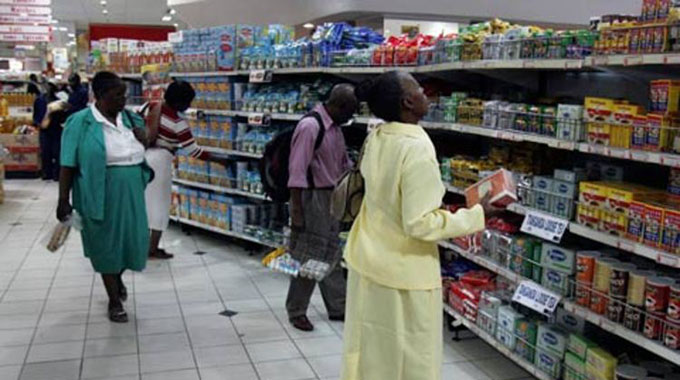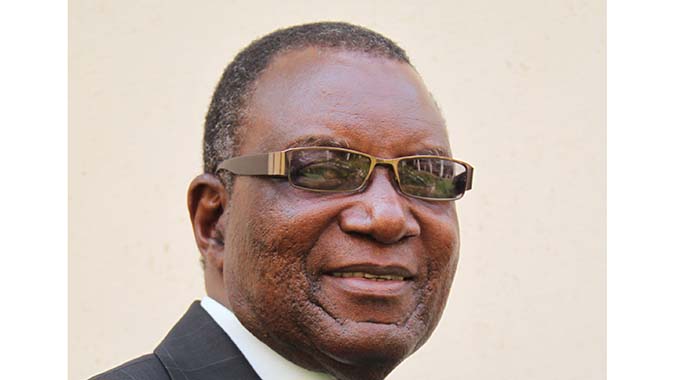Social media: A political platform fighting V2030

Dr Panganai Kahuni Correspondent
The current economic narrative occurring in Zimbabwe reminds us of the period of economic madness of 2008. The economic period of 2008 saw captains of industry, wholesalers and retailers abandoning business morals and ethics for political expediency.
They all covered themselves under the guise of “lack of policy consistency”. This resulted in all employing price hikes as the sole business strategy which they all sought to use as a solution but failed dismally to arrest the run- away inflation. Until Government came in with the multi-currency policy, inflation was running amok with no business solution in sight.
Vision 2030, which ED has espoused, is meant to create a middle income economy by 2030. A middle income economy ensures sustainable lifestyles for every citizen. Currently, the gap between the poor and the rich is too wide and Vision 2030 seeks to eradicate or bridge that stinking economic gap between the poor and the rich.
The journey to Vision 2030 is never going to be easy. The Second Republic deliberately adopted this vision knowing too well the economic hardships the nation was to walk through. Parallel to this vision Government is putting in place measures to fight corruption.
In pursuance of the strategy of making Zimbabwe a middle income economy by 2030 Government pronounced a raft of economic measures which it intends to operationalise starting mid this month. While a deadline has been set for the policy to be effected, it is disheartening to note that business executives have decided to attack the policy with measures that are threatening to bring the economy to a halt.
While business concerns against the recently announced monetary policy which is yet to be effected can be understood from a business perspective the reaction by wholesalers and retailers is both unpatriotic and reactionary in nature. One would think that the business community, particularly captains of industry, wholesalers and retailers must have engaged Government rather than burn the house.
No one condones Government to act without involving industry. In cases where a policy is pronounced and there exista lead time before implementation, honestly business must engage Government before employing the demonic 2008 strategy of price hikes which in essence destroys productivity. In Shona we say “usarase mbereko pamusaka pekufirwa”.
The past weeks have been crazy in Zimbabwe with citizens taken unaware and unprepared by wholesalers’ and retailers’ actions in response to Government measures meant to mitigate the current huge foreign and domestic debt. While the measures, painful as they may currently appear to be there are a good foundation to recovery. Zimbabwe cannot continue to depend on borrowing and receiving donations then expect the economy to be self-capitalising.
The past has been bad and that cannot be continue any longer. It is now time to swallow the bitter pill in order to recover the economy and business executives cannot also be allowed to remain in the comfort zones of price hikes that threaten the survival of citizens unless they are now a political platform for political messaging like the social media.
It is disheartening to note that instead of finding ways of engaging Government, business executives who take home fat pay packets and have not given pay rises and bonuses to workers employ price hike strategies. Surprisingly, this is done soon after reading speculative messages on social media. What boggles the mind is how a learned wholesaler and retailer takes social media messages for a fact.
Zimbabweans, with our high literacy rate, cannot honestly be driven by the lies that are peddled on social media to the extent of deliberately attacking a policy that seeks to re-invigorate the economy so that it grows to middle income levels.
Tajamukas
Politics comes once every five years and goes. Politics alone does not bring food on the table. In 2008 people were motivated by private media to do the unthinkable in politics which only served to worsen the situation. The MDC and ZCTU motivated people to stay away from work, engaged in violent and destructive demonstrations, looted shops and supermarkets but they did not bring food on the table.
This history of bad politics that destroys both the economy and survival of citizens while few individuals become filthy rich from donor funds is what must not be allowed to rear its ugly head on us again. It is said once bitten twice shy. Zimbabweans must be shameful of practising bad politics such as price hikes, looting of shops, peddling lies on social media, etc. There must be a platform of practising inclusive dialogue as solutions are sought to revive the economy.
Social media is now awash with negative messages that seek to motivate citizens to do the unthinkable. ZCTU and MDC Alliance also seem to be capitalising on the price madness by wholesalers and retailers. The tajamukas feel it’s time to profit on the negatives as they become innovative not in finding solutions that bring food on the table but for crafting destructive strategies aimed at motivating the public to do the unthinkable.
People must understand that reviving the economy is not the sole responsibility of Government. Zimbabweans, from Government, business communities, political parties and citizens, are all responsible for reviving the economy. While it may be convenient to blame Government, business must also take the blame for wanton price hikes, citizens for importing unnecessary goods and the opposition for being unnecessarily militant in the search for a lasting solution.
It is my humble view that Zimbabwe’s situation can be improved if every section of the economy plays its part positively. The vision for a middle income economy by 2030 is both doable and achievable if every sector of the economy behaves responsibly allowing positive and inclusive engagement to take place.
Tracing our fotsteps towards the2008 crisis or migrating to the Tunisian or Libyan scenario will not make our economic situation better. In fact, more lives will be unnecessarily lost if Zimbabwe is made to follow such thorny routes. In my humble view this negative scenario being sponsored by social media and politicians of dubious credentials must be avoided at all costs for the good of the nation.
Dr Panganai Kahuni is a political, socio-economic commentator, researcher and diplomat in the SADC region writing in his personal capacity.









Comments